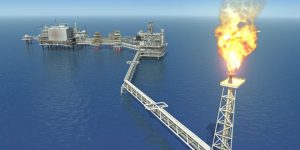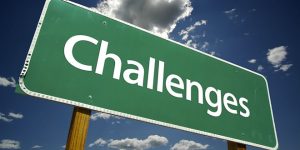Lessons learned from the BP oil spill disaster
The impact of the oil spill disaster on the Gulf ecosystem and the livelihood of many will be a subject of many future discussions and litigation. The spill, which has now been contained, has clearly been a nightmare that BP wishes to put behind it. Especially so, given that ongoing investigations continue to reveal that BP’s willful disregard of reasonable safety practices might have led to the eventual collapse of the Deepwater Horizon. In the weeks that followed that collapse, BP’s approach to the challenges were mired with shortcomings which did little to redeem the company’s image.
Whatever becomes of this issue, engineers will certainly use BP’s modus operandi as case study on how not to manage a crisis.
A wise history teacher once told me that one should always learn from the mistakes of others so as not to repeat such mistakes. So in light of the Gulf crisis, we herein provide our observation on competent leadership and crisis management.
Make sure your house is in order
It is not fair to point out one’s shortcomings without first criticizing the precipitating events that led to the eventual shortcoming. Unfortunately for BP, their organizational culture appears to have been one which sanctioned extreme risk-taking, ignored expert advice, overlooked warnings about safety issues and hid facts, even leading up to the April 20 collapse of the Deepwater Horizon. In fact, according to a Congressional investigative report and news accounts, BP officials
overruled contractors to take a faster and cheaper, but far riskier, course in the hours before the explosion. A BP investigator admitted making a “fundamental mistake” by not taking precautions when supervisors on the rig saw that dangerous amounts of high-pressure gas were entering the well, according to a preliminary report from the House Subcommittee on Oversight and Investigations. That gas ultimately shot out of the well and blew up. Source: USA Today
It is always a good idea to always do the right thing as a corporation. If there is ever a disaster in which positive public perception is necessary to perverse your corporate image, then you stand a better chance if your house is order.
Anticipate obvious types of mishaps
In February 2009, BP filed an application with the now defunct Minerals Management Service( MMS ). In the application BP claimed that it was unlikely that any accident would occur during their work and therefore they did not provide any action plan in case something did happen. Such optimism is cute but unfortunate. In a high risk industry such as BP’s, one would expect stringent safety regulations especially given the depth of exploration and the potential environmental effects that we have sadly come to be well familiar with.
While it is impossible to anticipate all kinds of problems in any kind of project you are working on, it a good idea to recognize the obvious ones and plan for them accordingly.
Take responsibility, take action
Whenever disasters strike, as they will solemnly do, always take charge and fix the issues. In this cruel litigious society, finger pointing is perhaps the second activity your lawyers will ask you to perform. However, any responsible corporation should put the needs of the public ahead of the perceived lawsuits.
Competent leadership in a time of crisis
In the days following the terrible 9/11 attacks, New York’s then Mayor Giuliani understood the importance of leading in a manner that improved, rather than exacerbated, an extremely difficult and tense situation.
Never downplay safety in favor of cost
This almost goes without saying but in a world of shareholders, performance bonuses and corruption it is worth mentioning. In no case should it ever be appropriate to downplay safety in order to save cost or meet deadlines. More often that not, such an exercise will only be putting the lives of your employees in danger and potentially the environment and animals which depend on it.
It will also help to have safety protocols and training on such protocols for all employees to follow. Safety briefings should be a must in every project that involves machinery or moving vehicles. Also, stringent rules should be in place to make sure that employees are always adhering to the safety requirements.





Thanks for the very enlightening issues.
However,I’d like to draw the world’s attention to a volatile and more critical remoted issue.The Niger Delta of Nigeria is a case which has not received much attention.
Total negligence and zero corporate responsibility substituted for profits.
A place where one could fetch black gold from the surface of the Niger river.
The developed nations will always remain developed.Not only in economy but in policies and monitoring principles and measures.
Opposite are the developing nations.
We are in a world where right is substituted for high profit and high divided for shareholders as a way of maintaining a definate return on equity(ROI)
The issue of BP is a full case to be studied by all.Especially Ghana which has now discovered black gold and is at the same time a developing nation.